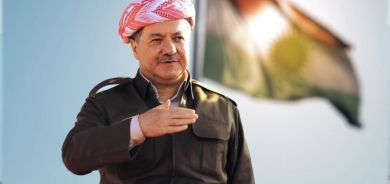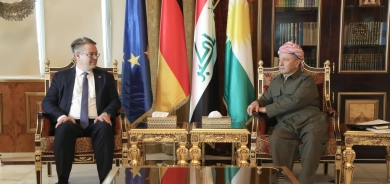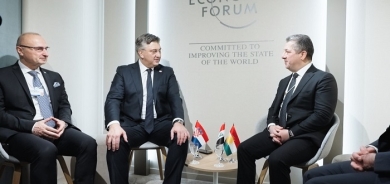Iraq and Iran Exchange Remains of Soldiers from First Gulf War at Shalamcheh Border

Iraq and Iran on Sunday conducted a solemn exchange of soldiers’ remains at the Shalamcheh border crossing, continuing their efforts to account for those who went missing during the First Gulf War (1980–1988).
According to Hassan Al-Najjar, a representative from Basra’s local government, Iraq transferred the remains of 41 Iranian soldiers to Iranian authorities under a memorandum of understanding between the two nations. Of these, 16 soldiers have been identified. In return, Iran handed over the remains of 21 Iraqi soldiers, including one individual who has been identified.
“DNA testing will be conducted on the unidentified remains to facilitate their return to families,” Al-Najjar told Shafaq News.
Despite the war having ended nearly three decades ago, the fates of countless soldiers from both sides remain uncertain. While no official figures are available, estimates suggest that around one million lives were lost during the conflict, which inflicted immense human and economic losses. Unofficial estimates place the economic damage at over $1 trillion.
This exchange is part of ongoing efforts under the 2008 Geneva Agreement, facilitated by the International Committee of the Red Cross (ICRC). However, no official data has been released regarding the total number of remains exchanged between the two nations to date.
Relations between Iraq and Iran have seen significant improvement since 2003, following the U.S.-led overthrow of former Iraqi dictator Saddam Hussein. This cooperation highlights the countries’ shared commitment to addressing the long-standing consequences of their conflict.
The First Gulf War remains one of the region's most devastating wars, with far-reaching impacts on both nations’ histories and societies. Efforts like these exchanges are seen as steps toward reconciliation and healing for the families of those who never returned home.















